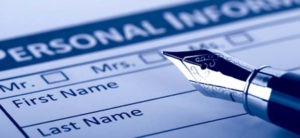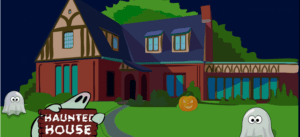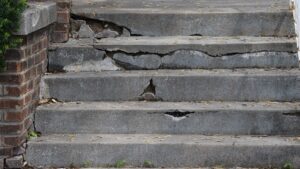What Elements Do You Need to Prove in a Slip and Fall Case?
Out of all the accidents we see on a regular basis, slips and falls are perhaps the most unpredictable, and because of this, they can be some of the most damaging. Floor hazards such as uneven or wet surfaces may vary, but any slip and fall accident can cause a claimant to suffer severe damages.
The injuries sustained in a slip and fall accident can force you to take time away from work, and they can also have emotional and psychological effects on your life moving forward, especially in severe cases. When you’re in a position to move forward with legal action after a fall, you may be wondering what exactly you need to do to recover compensation. Let’s take a look at what elements go into slip and fall cases.
The Process of Proving a Slip and Fall Case
Whenever you wish to recover compensation for your injuries from another party, you must be able to show that they were actually at fault for your fall. To be clear, you don’t have to prove malice or intent, you just need to show that there was some form of negligence involved. Anytime a home or business owner admits guests onto their property, they have an obligation to maintain a safe environment or at least explicitly notify guests of any existing hazards.
For a free legal consultation, call (725) 900-9000
State laws vary, but for the most part, there are two primary ways in which you can attempt to prove your slip and fall case: the first is to show that the property owner in question was responsible for creating the hazard that eventually caused you to fall. The second method is to argue that the property owner was negligent by ignoring hazards that they reasonably should have seen and corrected.
Establishing the Presence of a Hazardous Condition
As mentioned above, the first way to prove a slip and fall case is to demonstrate that actions taken by the property owner were responsible for creating unsafe conditions on the property. To give an example, if you slipped on a high-gloss casino floor, you could argue that the risks of slippery floors are well-known, yet they decided to install them anyway.
Click to contact our personal injury lawyers today
Another common example has to do with safety-related equipment. Property owners, especially businesses open to the public, are obligated to have functioning safety measures in place. If a customer falls down a set of stairs that doesn’t have a handrail, you could argue that is grounds for negligence.
Property Owners’ Failure to Properly Spot and Fix Hazards
Complete a Free Case Evaluation form now
The other popular method of establishing a slip and fall claim is to prove that existing hazards were not properly spotted and addressed, which eventually led to your fall. Even in the event that the hazards were not caused by the owners themselves, they are still obligated to notice them and fix them within a reasonable amount of time.
For example, if a customer spilled a drink on the floor and you eventually slipped on it two hours later, you could argue that they had plenty of time to address the issue–time is an important factor in these cases because property owners do have the right to properly respond. If the spill happened and you fell seconds afterwards, the owner did not have adequate time to address the issue and therefore your claim may not be valid.
Determining the Cause of Your Slip and Fall Accident
Sometimes these accidents happen so quickly that you aren’t even aware of what the cause was at first, and that’s okay. The best way to definitively determine the cause of your accident is to speak with an experienced slip and fall injury attorney, as they will have the resources to obtain and preserve the evidence needed to establish the cause of the accident.
Potential Parties Who May Be Found Liable for Slip and Fall Injuries
With regards to slip and fall cases, business and home owners are most commonly held liable. Even if they didn’t directly contribute to your injuries, they can still be held responsible for any accidents that occur on their premises–in other words, if a sibling or employee caused your injuries, you would still file your claim against the owner in most cases.
However, there are certainly situations where third parties may also be held liable. For example, if a business employs an outside cleaning service to clean the floors and their error leads to your accident, you will likely be eligible to file your claim against either the business owner or the cleaning company, or both.
Need Help With a Slip and Fall Case? Van Law Firm Can Help
Slips and falls happen in seconds but the effects can last for months or even years–if you or someone you know needs help recovering compensation after suffering injuries in a slip and fall accident, simply contact the Van Law Firm office nearest you right away. Our award-winning staff of slip and fall injury attorneys can review your claim and formulate a tailored plan of action. Call today for more information about how Van Law Firm can help.
No obligation consultations are always free.
Let Us Help You! Call Now: (725) 900-9000

